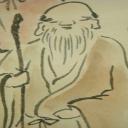Yahoo Answers is shutting down on May 4th, 2021 (Eastern Time) and the Yahoo Answers website is now in read-only mode. There will be no changes to other Yahoo properties or services, or your Yahoo account. You can find more information about the Yahoo Answers shutdown and how to download your data on this help page.
Trending News
Buddhist monk allowable foods?
I understand that buddhist monks eat only once or twice a day. I also know that there are certain foods and drinks that are allowed after midday. Can anyone tell me what these are? Do these foods also need to be offered?
Let me specify. I'm not inquiring about the actual diet of monk. I'm asking about what is okay for consumption after a monks midday meal. For example, I know tea and water is allowed. What else is acceptable according to the monastic code?
3 Answers
- P'angLv 71 decade agoFavorite Answer
In the southern (Theravada) schools of Buddhism, most monks only eat breakfast and lunch, taking no food after 12 noon. In general, they only eat food that has been offered, either to the monks directly (as alms) or to the monastery. I have seen cases where meat has been offered and the monks have eaten it, thus following the pattern set by the Buddha.
In the northern (Mahayana) schools of Buddhism, nearly all monks and nuns are vegetarian. In warmer areas of the Mahayana tradition, monks and nuns may only eat two meals a day, taking no food after 12 noon. However, in middle and northern China, Korea and Japan, monks and nuns will eat three meals a day. In many cases, foods are offered. The practice of seeking alms is less common in the Mahayana tradition.
In the Tibetan (Vajrayana) schools of Buddhism, monks and nuns typically eat three meals a day and meat is common in the diet. This is due to the harsh environment and the difficulties associated with growing beans and grains to supply protein. Foods are offered by the community and Tibetan monks and nuns don't usually seek alms.
In all cases, the actual foods eaten are versions of the local cuisine.
=========
Thanks for the clarification. I can see that I misunderstood your question.
Your question applies primarily to the Theravada tradition of Buddhism, since monks (and nuns) in the Mahayana and Vajrayana traditions employ a different Vinaya (monastic rules) which permits eating after noontime.
Strict Theravadin monks will only take pure water after 12 noon, with the exception (permitted by the Buddha) of needed medicines. The Buddha outlined a category called "tonic medicines" and some monks believe this to include certain foods such as milk-based products (butter, cheese). Tonic medicines are permissible after 12 noon, but only for 7 consecutive days.
There is, apparently, regional variation in what can be consumed after 12 noon. For example, monks in Thailand will sometimes consume fruit juice that has been filtered 7 times (to remove all "food" from the liquid). In some forest monasteries, candies are consumed after 12 noon, on the assumption that they are not "food."
So, in the strict sense, only water can be consumed after 12 noon. In the real world, monks and nuns find a way to consume all kinds of foods after 12 noon, while still remaining in loose compliance with the Vinaya.
- Anonymous1 decade ago
Well everything one eats is vegetarian food. Buddha once said "the eating of meat extinguishes the seed of compassion." you can not have a pure soul if you are benefiting from anothers death. Other than that, I'm not sure about the "eating schedule" per se.
- Anonymous5 years ago
Over 70% of the world's charities are Christian. And for the record, I've never heard of Christian pastors with "giant mansions."


